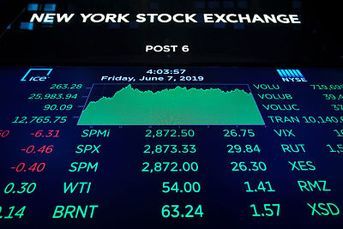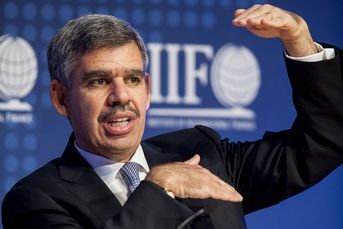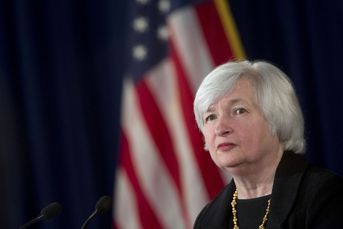El-Erian: Why are bonds and stocks acting strangely?
Over the last week, prices of all kinds of assets, from safe government bonds to risky stocks, rose together. What gives?
The past week saw a dynamic in financial markets that, not long ago, would have been deemed quite unusual: Prices of all kinds of assets, from safe government bonds to risky stocks, rose together. German bunds and U.S. Treasuries gained, pushing yields lower, as the Standard & Poor’s 500 Index approached its all-time high.
The movements continued to confound the once-traditional pattern, in which bond prices rise and stock prices fall when investors expect the economy to perform poorly, and vice versa. There are various explanations, some more consequential than others.
One interpretation is that investors expect hyperactive central bankers to remain their best friends, buoying markets with continued unconventional policies. Last week’s disappointing economic data out of the U.S. and Europe would support this view, putting pressure on the Federal Reserve and the European Central Bank to be more accommodative than they otherwise would.
By demonstrating a consistent willingness and ability to contain market volatility and bolster the prices of financial assets, essentially divorcing equity performance from that of the underlying economy, central bankers have managed to bring more money off the sidelines and into the market. Lower borrowing costs have also boosted companies’ actual profitability, allowing them to return more money to shareholders in the form of dividends and share buybacks, as has the notion that we are in a lower historical interest-rate paradigm.
That’s the optimistic view. It is also valid and, given how well it has played out, deeply entrenched in markets. But it may be only part of a less comforting explanation relating to the view that, at current valuations, bond investors may be reacting to something that the stock market has yet to recognize.
Bond investors tend to be more risk averse than equity investors, and thus reposition earlier in response to a higher probability of a market selloff. This is in part because they are more focused on the macroeconomic picture, and in part because bonds have a different risk-reward profile: They ultimately pay only their face value, whereas stocks can keep going up.
This interpretation is bolstered by the fact that the stock market is also subject to demand influences that could prove temporary. The boom in merger and acquisitions, for example, has pumped a lot of cash into the market, helping to push prices higher than what the performance of the economy would justify.
If this complementary interpretation is correct, it’s just a matter of time before the correlation between risky and riskless assets starts returning to its historical pattern. The hard part is specifying the timing, especially as it relates to a crucial psychological question: When will investors lose faith in central banks’ ability to keep bolstering the economy through higher financial asset prices?
This article originally appeared on Bloomberg News. Mohamed El-Erian, chief economic adviser at Allianz SE, is a Bloomberg News columnist.
Learn more about reprints and licensing for this article.







